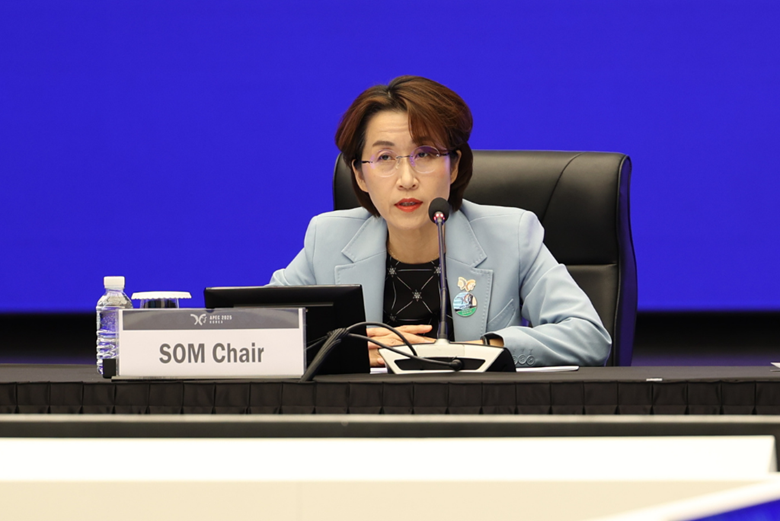
Gyeongju sets the stage as senior officials kick off the APEC Economic Leaders' Week on Monday, solidifying their commitment to a sustainable future, one that remains interconnected, embraces digital innovation and ensure the benefits of growth are broadly shared.
"Under this year's theme, 'Building a Sustainable Tomorrow: Connect, Innovate, Prosper' we have advanced meaningful discussions and made concrete progress across various initiatives, advancing APEC's vision of an open, dynamic, resilient and peaceful Asia-Pacific community," said Ambassador Yoon Seong-mee, Chair of the 2025 APEC Senior Officials Meeting.
The Concluding Senior Officials' Meeting marks the final push before leaders and ministers arrive later this week. Against a backdrop of heightened uncertainty, economies are seeking common ground on global issues that could shape the region's future growth and cooperation.
Throughout the year, officials have steered practical cooperation across APEC's agenda, including efforts to expand paperless trade and digital cooperation, advancing readiness for a high standard and comprehensive free trade agreement, shape regional approaches to artificial intelligence, accelerating public health and boosting services competitiveness.
"Now, as we enter the season of harvest, we face the important task of concluding the discussions of APEC 2025 and preparing to translate them into tangible outcomes," Ambassador Yoon said.
Under the "Connect" priorities, officials are focusing on efforts to deepen regional integration, including enhancing trade facilitation and reducing barrier to trade. Senior officials are deliberating on the new APEC Roadmap for Innovative, Competitive and Resilient Services, which seeks to strengthen regulatory readiness and institutional capacity across finance, digital platforms and creative economy.
In the "Innovate" track, the meeting is spotlighting efforts to advance digital cooperation and ensure that the benefits of innovation are widely shared. Korea's proposed APEC AI Initiative and progress under the APEC Internet and Digital Economy Roadmap (AIDER) were highlighted as key efforts to build inclusive, innovation-driven growth.
The "Prosper" priority is drawing attention to structural and social resilience. Discussions focused on demographic change, food and energy security, and social protection policies to ensure long-term wellbeing in the face of climate and geopolitical risks. Korea's proposed Collaborative Framework on Demographic Change was also acknowledged as a forward-looking contribution.
"This week's discussions show how APEC remains a vital incubator of ideas, where economies can build understanding, share solutions and find common ground even when global challenges loom large," said Eduardo Pedrosa, Executive Director of the APEC Secretariat.
"As we move toward Leaders' Week, the progress we're seeing on regional integration, digital transformation and long-term resilience is encouraging. Korea's priorities, especially around artificial intelligence and demographic change, are helping APEC remain focused, future-oriented and grounded in cooperation," Pedrosa added.
Over the two-day meeting, senior officials are finalizing recommendations to ministers on APEC's committee annual reports, the next APEC Economic Policy Report topic, outcomes from the Structural Reform Ministerial Meeting in Incheon, and the newly endorsed finance roadmap, the Incheon Plan.
APEC leaders and ministers will convene later this week to take forward the outcomes from senior officials' technical discussion and set the region's strategic direction for the year ahead.






